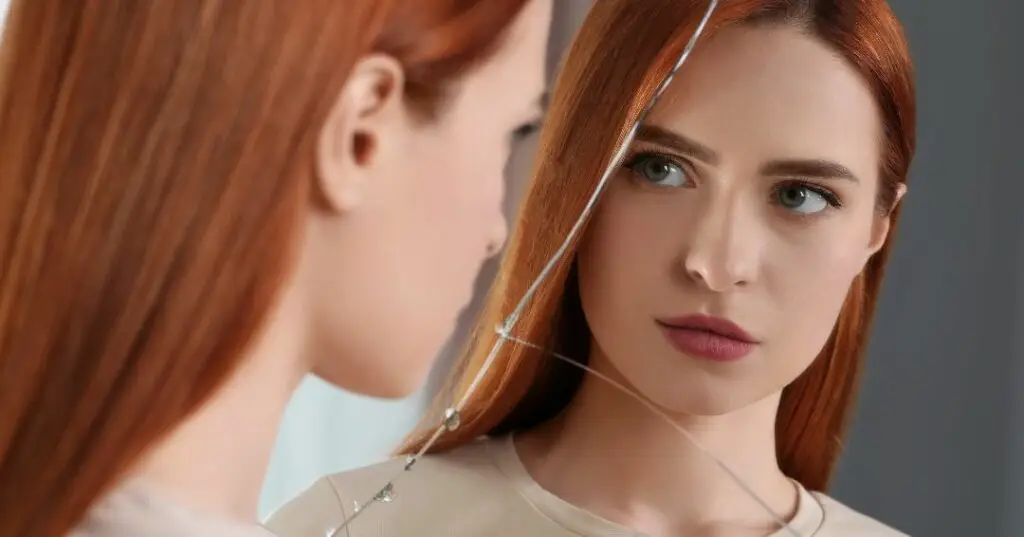
Extreme shifts in mood, energy, and activity levels characterize bipolar disorder. While it affects individuals of all genders at nearly equal rates, the presentation of bipolar disorder can vary by gender. Unfortunately, gender bias can sometimes prevent women from getting the right diagnosis. In this blog post, we’ll delve into the unique bipolar disorder symptoms in females, and why it’s important to know how this disorder affects everyone in different ways.
4 bipolar disorder symptoms in females
- Mood swings and hormones:
One of the hallmark features of bipolar disorder is the presence of intense mood swings. Manic episodes of euphoria followed by depressive episodes marked with apathy or hopelessness can affect functionality in daily life. Though mood shifts in women are wrongly attributed to hormonal fluctuations during the menstrual cycle, so they go undiagnosed or misdiagnosed.
- Mixed episodes:
Another bipolar disorder symptom in females is mixed episodes, where symptoms of mania and depression occur simultaneously or in rapid succession. Still, these episodes can be particularly challenging to identify and manage, as they do not follow the stereotypical trajectory of bipolar mood swings.
- Comorbidity:
Research suggests that females with bipolar disorder often have other conditions at the same time. Co-occurring conditions include asthma, obesity, anxiety, thyroid disease, and more. These comorbidities make it difficult to reach a diagnosis and make managing the disorder more challenging.
- Later onset:
Women are diagnosed with bipolar disorder an average of 3.5 years after men. Some women receive the diagnosis well into their 40’s or 50’s. Additionally, sometimes bipolar disorder symptoms in females appear during or after pregnancy, and doctors wrongly assume that the mood swings are due to life changes.

Bipolar disorder treatment options for women
Treatment options for managing bipolar disorder symptoms in females may include:
- Medication: Mood stabilizers, such as lithium or anticonvulsants, can help regulate mood swings. Antidepressants or antipsychotic medications may also be prescribed, depending on individual symptoms.
- Psychotherapy:
- Cognitive-behavioral therapy (CBT): CBT adapted for bipolar disorder focuses on identifying and challenging unhealthy thought patterns, enhancing coping skills, and promoting adherence to medication regimens. Multiple studies have demonstrated its effectiveness in reducing relapse rates and improving functioning.
- Interpersonal and social rhythm therapy (IPSRT): IPSRT emphasizes the stabilization of your daily routines and interpersonal relationships to regulate your mood. Research suggests it can help prevent mood episodes and improve social functioning in bipolar disorder.
- Family-focused therapy (FFT): FFT involves psychoeducation for both you and your families, communication skills training, and problem-solving techniques to enhance family support and reduce relapse rates. It has been shown to reduce depressive symptoms and improve family functioning.
- Psychoeducation and self-management: Psychoeducation programs provide you with information about your condition, its symptoms, triggers, and treatment options. Engaging in self-management strategies, such as mood tracking, stress reduction techniques, and lifestyle modifications, can empower you to better manage your condition and prevent relapses.
The role of online therapy
In recent years, the role of online therapy in managing bipolar disorder symptoms in females has emerged as a pivotal aspect of mental health care. With its convenience, accessibility, and flexibility, online therapy offers a lifeline to women navigating the challenges of bipolar disorder.
This is where our compassionate team at Makin Wellness comes in. Our team consists of specialized providers who are adept at addressing the unique needs of females and every individual with bipolar disorder. Through our online therapy services, you can access tailored support and evidence-based interventions from the comfort of your own home.
Whether through video sessions, or phone calls, our qualified professionals provide a safe space for you to explore your emotions, develop coping strategies, and navigate the complexities of bipolar disorder. By embracing technology-enabled mental health solutions, you can find empowerment and resilience in managing your bipolar disorder effectively, fostering a path towards greater mental health and stability.

Conclusion
Understanding bipolar disorder symptoms in females is essential for accurate diagnosis, effective treatment, and improved outcomes. By recognizing the uniqueness of the condition in women, care providers can provide support that addresses the complexities of hormonal influences, atypical symptoms, and comorbid conditions. Most importantly, women with bipolar disorder can receive help sooner when there is a broader understanding of how the disorder varies by gender.
Empowering females with bipolar disorder with knowledge and access to appropriate resources can help them navigate the challenges of living with bipolar disorder. If you are experiencing mood shifts or mixed episodes that cause you distress, Makin Wellness is here to support you. Our qualified online therapists can help make sense of how you are feeling. Contact us at (833)-274-heal.








